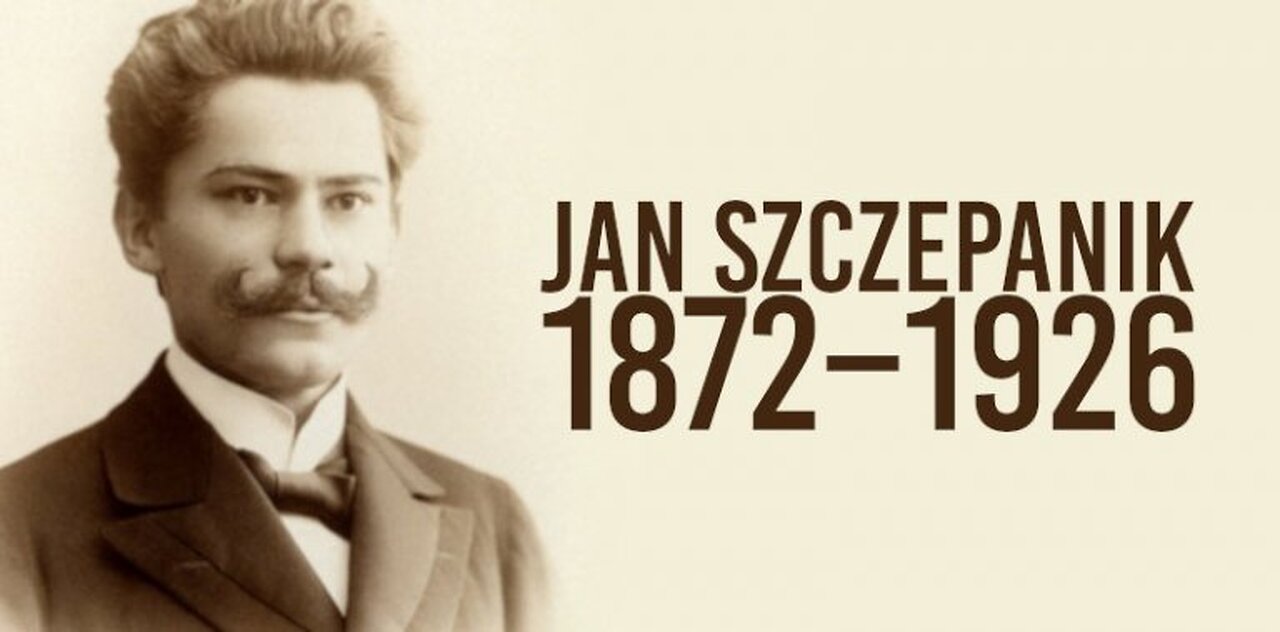Premium Only Content

Polish Genius : Jan Szczepanik
A Polish inventor patented a device for transmitting a moving color image and sound over a distance via electricity. Sound familiar? The telescope, the ancestor of television, caused a great sensation at the end of the nineteenth century. Unfortunately, the device was very complicated and expensive and was not implemented into production.
Jan Szczepanik was born on June 13, 1872. He was the illegitimate child of farmers' daughter. He studied at the junior high school in Jasło and the teachers' seminary in Kraków. In 1892 he passed his secondary school leaving examination. He worked as a teacher in rural schools. After moving to Krakow, he started working at the "Camera Warehouse". He learned about the technologies associated with contemporary cameras. The owner of the company financed the implementation of Szczepanik's ideas and founded the "Societe des Inventions Jan Szczepanik et Cie" society in Vienna. Szczepanik was a brilliant autodidact. He was the author of over 50 inventions and several hundred patented technical ideas. His works concerned colorful weaving, film and photographic techniques. While still a rural teacher, he intended to modernize home-based methods of producing fabrics. He was interested in the technology of colorful weaving. At that time, the most modern solution were jacquard machines invented by Joseph Marie Jacquard, controlled by punched cards. Szczepanik introduced new methods in the field of phototextiles. They shortened fabric production time and lowered costs while offering excellent quality. These solutions dominated the Austrian and German textile industries. In 1899, he developed a color film system. A dozen or so years later, a camera and projector for a color film were created in his studio. Szczepanik was the author of a system of color photography and light-sensitive color paper. His method was later used by Kodak and Agfa. An interesting device was a photosculptor used to copy sculptures using a photographic method.
At almost the same time as another Pole - Kazimierz Żegleń, he patented a bulletproof vest. She saved the life of the Spanish King Alfonso XIII during an assassination attempt. As a reward, he was awarded a high Spanish distinction. When Tsar Nicholas II wanted to do the same, the Polish inventor refused for patriotic reasons.
Szczepanik was called "Polish Edison", "Austrian Edison", "Leonard da Vinci of Galicia" and "Galician genius". Mark Twain himself wrote about him. The talented Polish inventor died on April 18, 1926 in Tarnów.
-
 13:37
13:37
Exploring With Nug
5 hours agoSUV Found Underwater Searching For Missing Man Jerry Wilkins!
183 -
 LIVE
LIVE
xBuRnTx
24 minutes ago1st Warzone Stream Online
272 watching -
 LIVE
LIVE
JdaDelete
22 hours ago $0.11 earnedDino Crisis - Sega Saturday
319 watching -
 23:22
23:22
MYLUNCHBREAK CHANNEL PAGE
23 hours agoUnder The Necropolis - Pt 5
14.1K6 -
 2:26:11
2:26:11
Jewels Jones Live ®
1 day agoWINNING BIGLY | A Political Rendezvous - Ep. 108
39K20 -
 LIVE
LIVE
Bare Knuckle Fighting Championship
4 days agoBKFC FIGHT NIGHT MOHEGAN SUN FREE FIGHTS
362 watching -
 25:09
25:09
BlackDiamondGunsandGear
3 hours agoYou NEED to be Training For Whats to Come
3.55K3 -
 20:03
20:03
Sideserf Cake Studio
9 hours agoA HUNGRY HUNGRY HIPPOS CAKE THAT ACTUALLY WORKS?
2.5K4 -
 23:51
23:51
marcushouse
9 hours ago $0.15 earnedStarship’s Next Move Is Coming Sooner Than You Think!
1.84K2 -
 22:24
22:24
The Finance Hub
15 hours ago $1.16 earnedBREAKING: JOE ROGAN JUST DROPPED A MASSIVE BOMBSHELL!!!
6.29K10